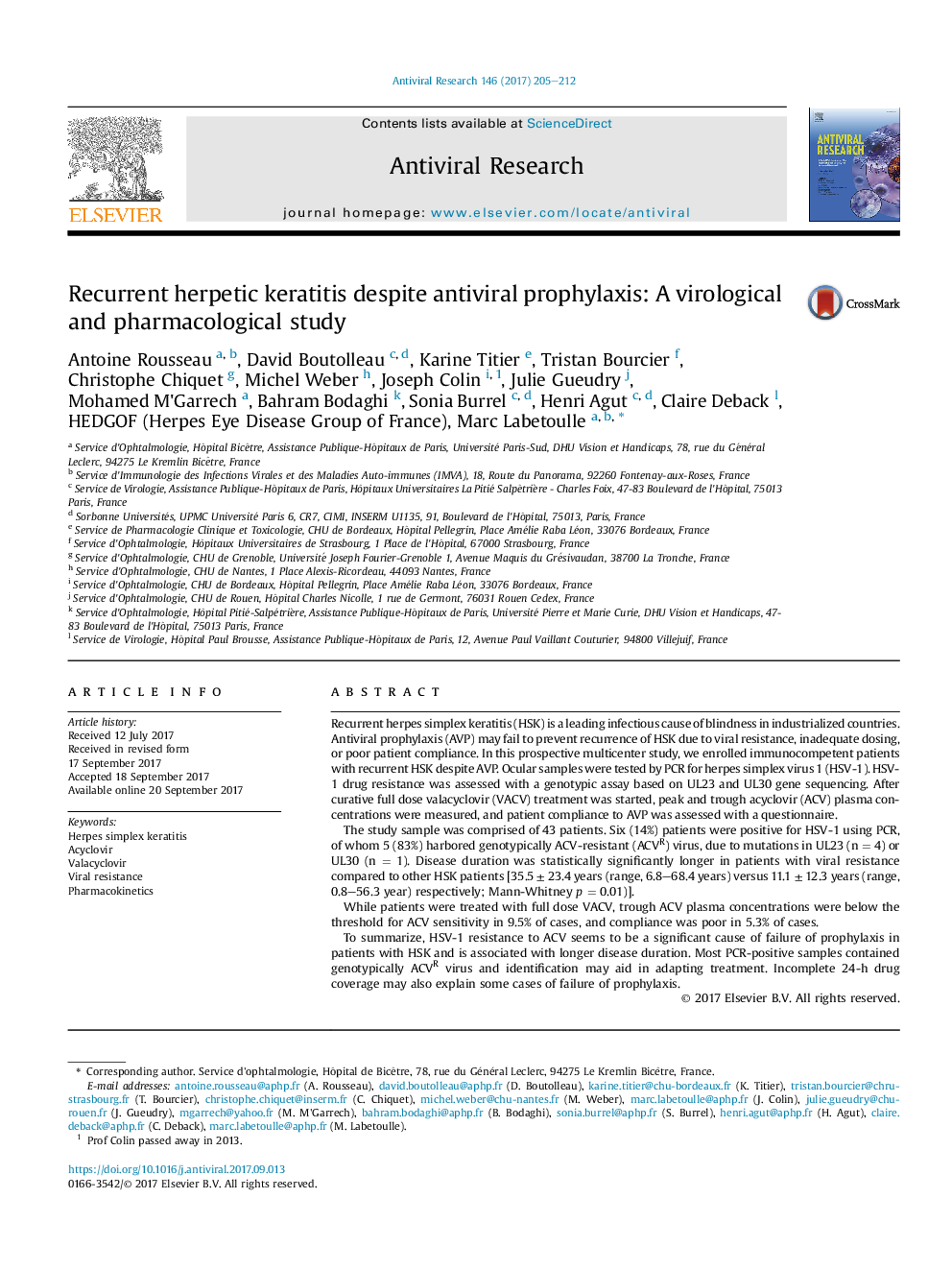| کد مقاله | کد نشریه | سال انتشار | مقاله انگلیسی | نسخه تمام متن |
|---|---|---|---|---|
| 5551690 | 1557797 | 2017 | 8 صفحه PDF | دانلود رایگان |
- In patients with recurrent herpes keratitis despite antiviral prophylaxis, most PCR-positive samples contain ACVR virus.
- In these patients, HSV-1 resistance is associated with a longer disease duration.
- Incomplete 24-h drug coverage may also explain some cases of failure of prophylaxis.
Recurrent herpes simplex keratitis (HSK) is a leading infectious cause of blindness in industrialized countries. Antiviral prophylaxis (AVP) may fail to prevent recurrence of HSK due to viral resistance, inadequate dosing, or poor patient compliance. In this prospective multicenter study, we enrolled immunocompetent patients with recurrent HSK despite AVP. Ocular samples were tested by PCR for herpes simplex virus 1 (HSV-1). HSV-1 drug resistance was assessed with a genotypic assay based on UL23 and UL30 gene sequencing. After curative full dose valacyclovir (VACV) treatment was started, peak and trough acyclovir (ACV) plasma concentrations were measured, and patient compliance to AVP was assessed with a questionnaire.The study sample was comprised of 43 patients. Six (14%) patients were positive for HSV-1 using PCR, of whom 5 (83%) harbored genotypically ACV-resistant (ACVR) virus, due to mutations in UL23 (n = 4) or UL30 (n = 1). Disease duration was statistically significantly longer in patients with viral resistance compared to other HSK patients [35.5 ± 23.4 years (range, 6.8-68.4 years) versus 11.1 ± 12.3 years (range, 0.8-56.3 year) respectively; Mann-Whitney p = 0.01)].While patients were treated with full dose VACV, trough ACV plasma concentrations were below the threshold for ACV sensitivity in 9.5% of cases, and compliance was poor in 5.3% of cases.To summarize, HSV-1 resistance to ACV seems to be a significant cause of failure of prophylaxis in patients with HSK and is associated with longer disease duration. Most PCR-positive samples contained genotypically ACVR virus and identification may aid in adapting treatment. Incomplete 24-h drug coverage may also explain some cases of failure of prophylaxis.
Journal: Antiviral Research - Volume 146, October 2017, Pages 205-212
